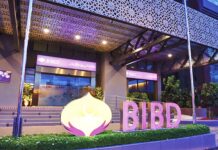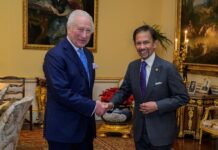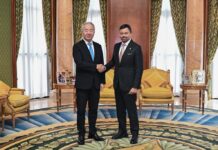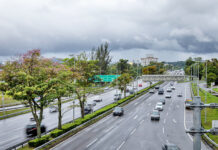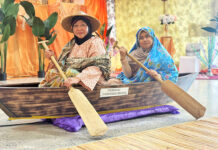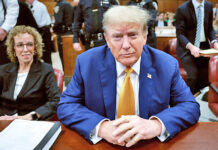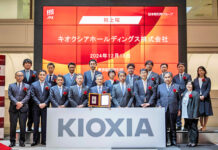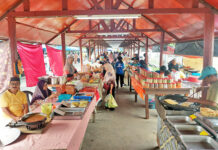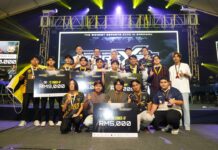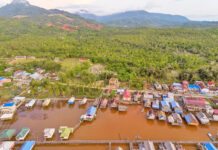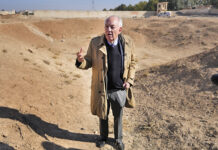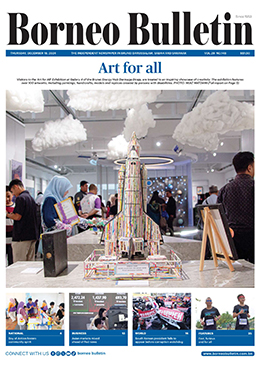The Ministry of Education’s (MoE) Digital Citizenship Framework builds on the values of Malay Islamic Monarchy (MIB) and learners will use digital technology creatively, responsibly and safely to explore, learn, work, communicate and participate in society with respect for each other, Minister of Education Datin Seri Setia Dr Hajah Romaizah binti Haji Mohd Salleh said.
It will be a comprehensive and accessible guide for all school communities – to understand and support each other as well as function and participate fully in a digital world, she said.
The minister said this during the launch of the framework and handbook at the opening ceremony of the 6th School Leaders Convention 2024 in Jerudong yesterday. The Department of Curriculum Development led the development of the framework in collaboration with other departments at the MoE including school principals since 2021. The framework focuses on equipping stakeholders with knowledge, skills, attitudes, and core values as responsible users in the digital world.
Director of Educators Management at the MoE Masdiah binti Haji Tuah as co-chairperson of the convention also addressed the gathering.
Director of the Sciences Branch, Curriculum Planning and Development Division at Singapore’s Ministry of Education Teo Kok Hong keynote speech focused on ‘STEM Education in Singapore Schools’. Teo oversees the curriculum review, syllabus and resource design as well as development of science, technology, engineering and mathematics (STEM)-related subjects in general education and the promotion and organisation of STEM-related initiatives in Singapore.
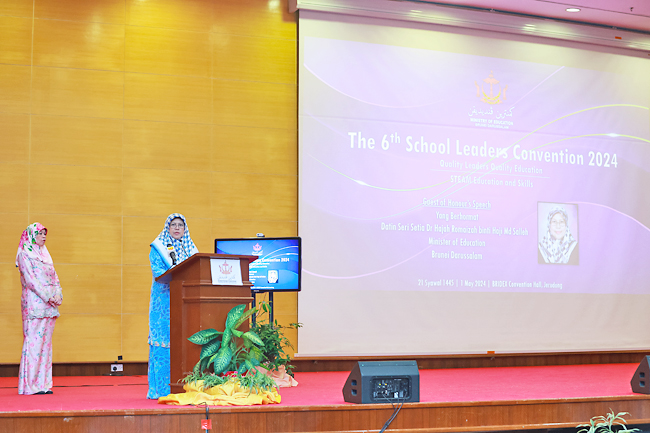
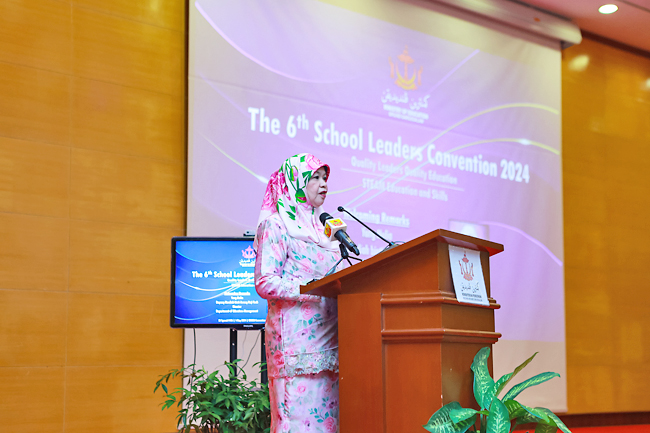
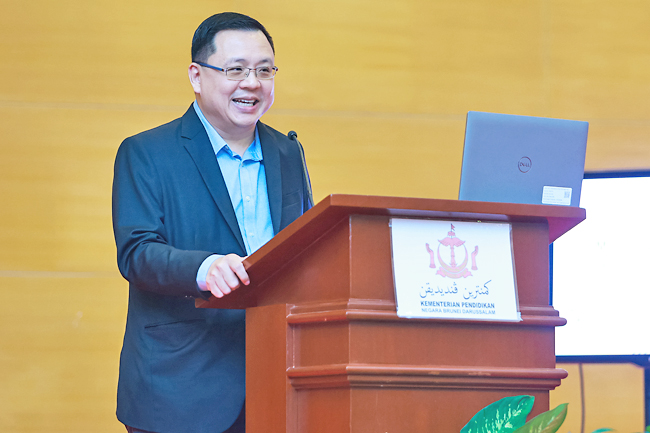
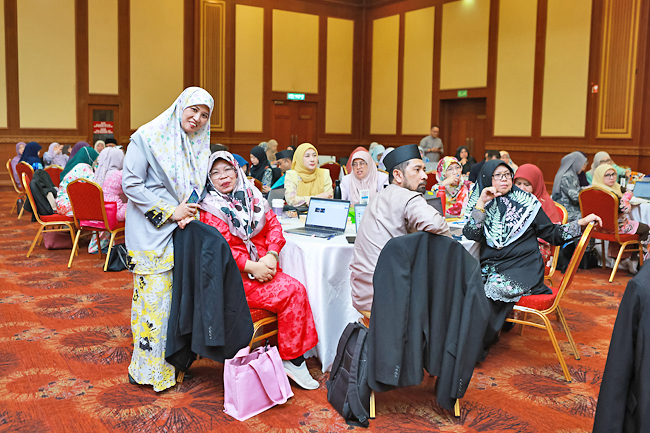
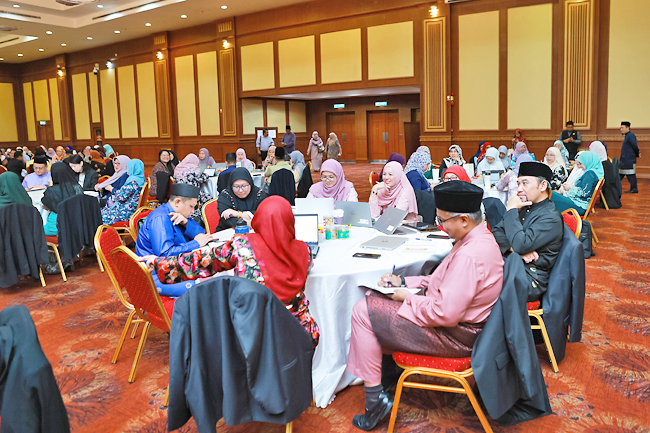
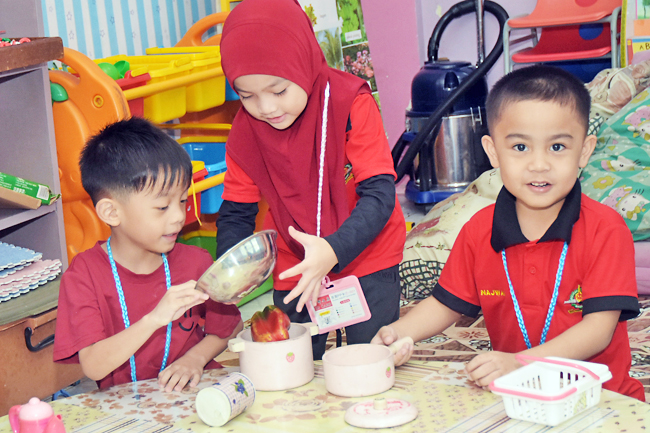
Some 346 participants comprising school leaders from government and private schools attended the convention organised by MoE’s Department of Educators Management in collaboration with the Department of Schools.
Themed ‘Quality Leaders, Quality Education’, the convention aims to strengthen systemic coherence within the MoE through a culture of collaboration between all stakeholders.
These include strengthening school leaders’ leadership capacity and competencies, enhancing shared accountability between departments and schools for quality implementation of the ministry’s initiatives as well as acknowledging and recognising schools’ contributions and achievements.
The sub-theme for this year’s convention is ‘STEAM Education and Skills’, aimed to give greater awareness and deeper understanding about the development of science, technology, engineering, the arts and mathematics (STEAM) competencies of students in the Sultanate.
The morning session saw a workshop by the Science Technology and Environment Partnership Centre and Entrepreneurship Innovation Centre titled ‘STEAM Competencies Rubrics’.
The afternoon session continued with a forum of heads of departments and school leaders.
The forum titled ‘Nurturing Future Ready Learners’ discussed the efforts of various parties in improving joint accountability and further improving the quality of the implementation of initiatives in schools.
The convention concluded with the presentation of letters of appointment to new school leaders and school incentives for government schools that achieved excellence in public examinations.
Eight primary schools were awarded for 90 per cent grade A-C in Primary School Assessment (PSR) last year and two primary schools were awarded for achieving 90 per cent of key performance indicators from 2021 to 2023.
Three secondary schools were awarded for having 60 per cent ‘O’ Levels/IGCSE last year and one secondary school recognised for distinction in the BTEC programme in 2023.
One sixth form centre received an achievement award for 80 per cent achieving three ‘A’ Levels and above last year.
Eight primary schools and two secondary schools were awarded for improvements in PSR and ‘O’ Levels results.
Eleven primary schools, 10 secondary schools and three sixth form centres received awards for achievements in Whole School Evaluation last year. – James Kon

